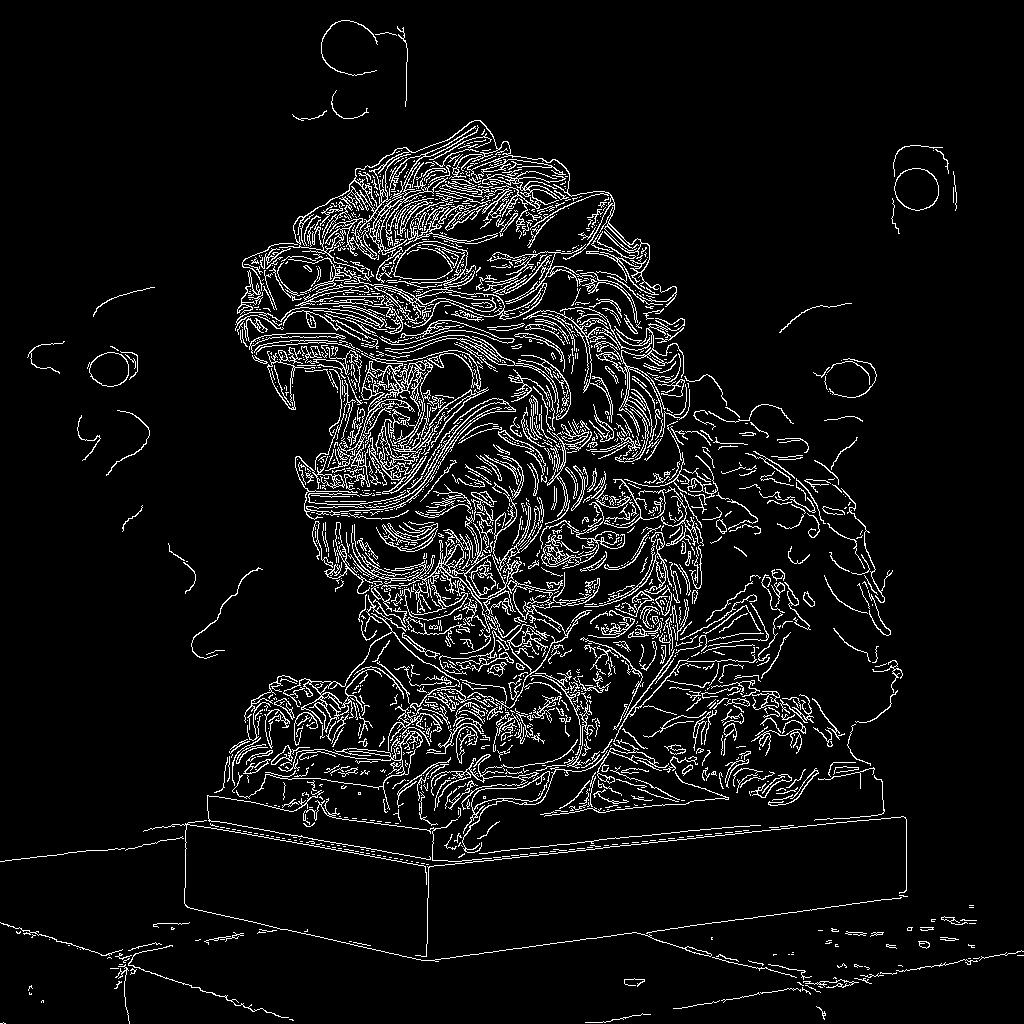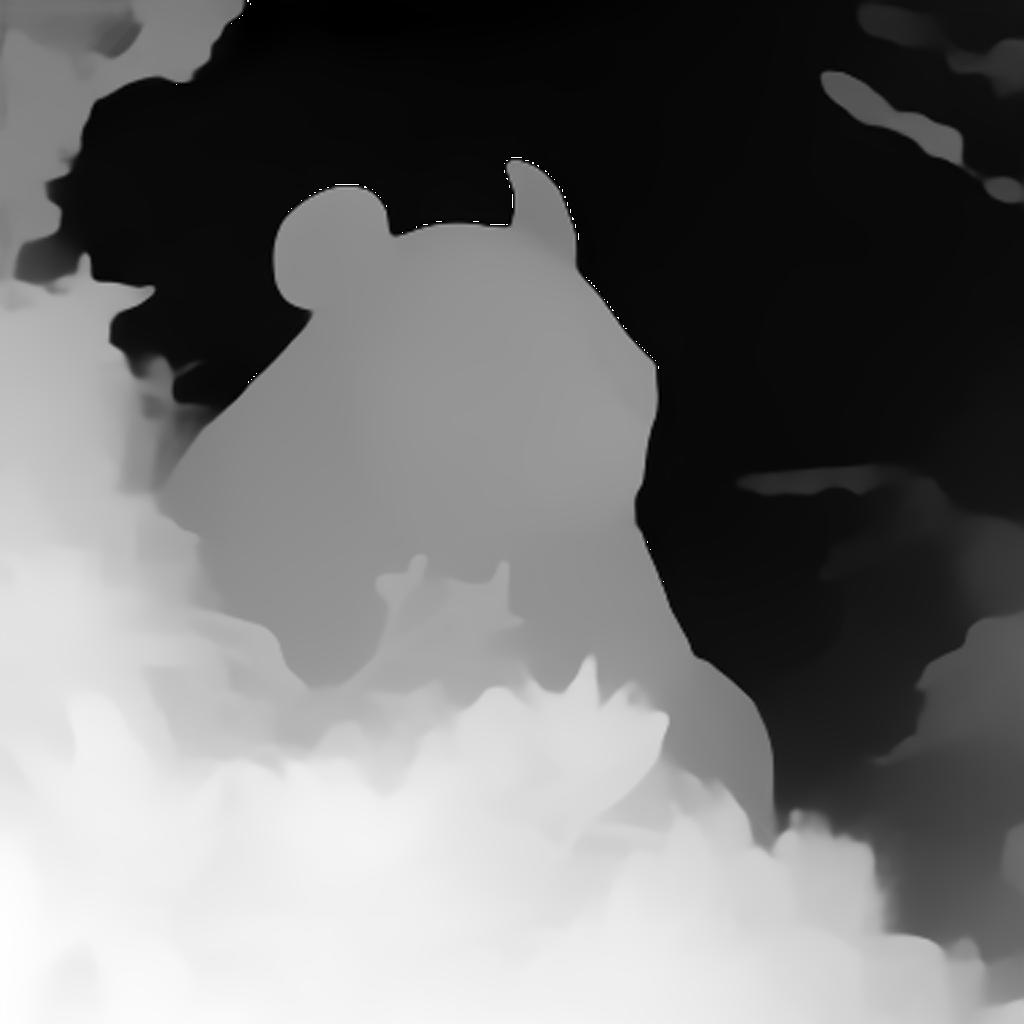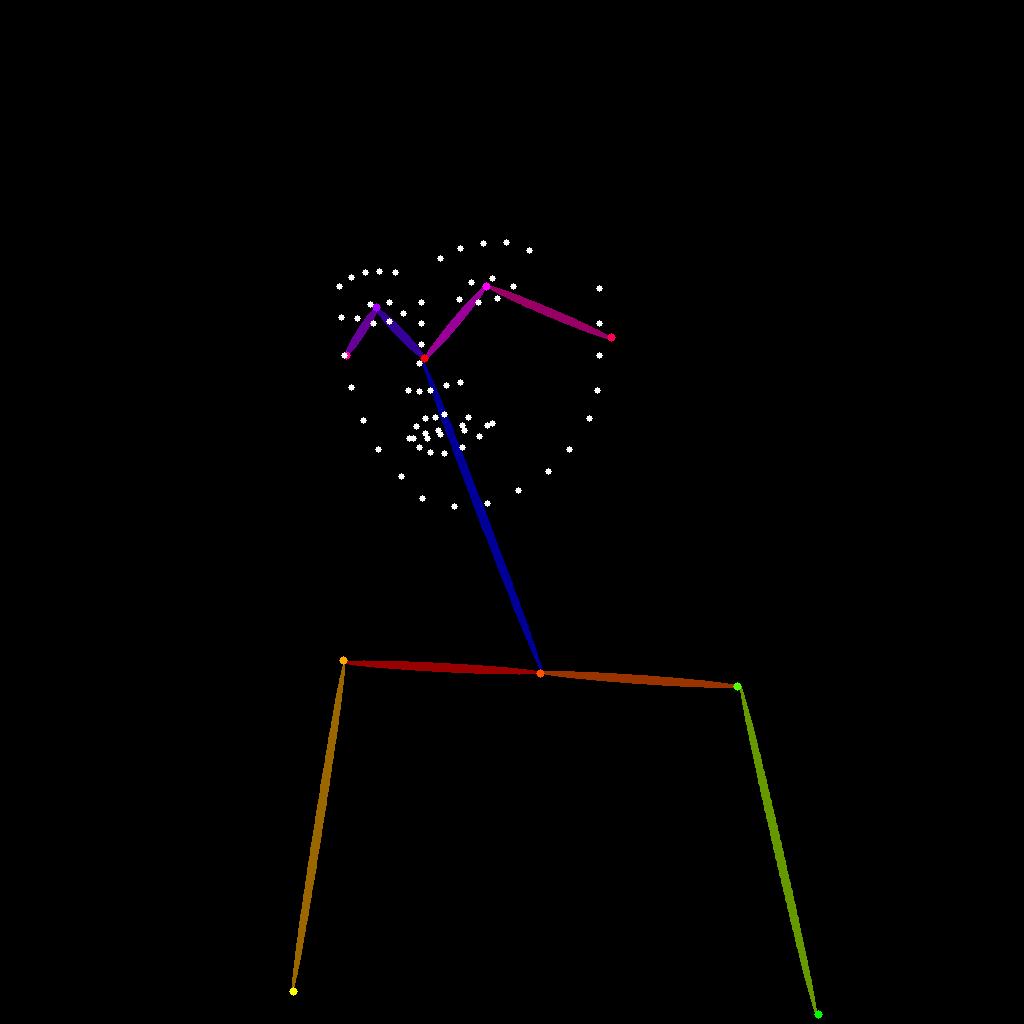Using HunyuanDiT ControlNet
Instructions
The dependencies and installation are basically the same as the base model.
We provide three types of ControlNet weights for you to test: canny, depth and pose ControlNet.
Download the model using the following commands:
cd HunyuanDiT
# Use the huggingface-cli tool to download the model.
# We recommend using distilled weights as the base model for ControlNet inference, as our provided pretrained weights are trained on them.
huggingface-cli download Tencent-Hunyuan/HYDiT-ControlNet --local-dir ./ckpts/t2i/controlnet
huggingface-cli download Tencent-Hunyuan/Distillation-v1.1 ./pytorch_model_distill.pt --local-dir ./ckpts/t2i/model
# Quick start
python3 sample_controlnet.py --no-enhance --load-key distill --infer-steps 50 --control_type canny --prompt "在夜晚的酒店门前,一座古老的中国风格的狮子雕像矗立着,它的眼睛闪烁着光芒,仿佛在守护着这座建筑。背景是夜晚的酒店前,构图方式是特写,平视,居中构图。这张照片呈现了真实摄影风格,蕴含了中国雕塑文化,同时展现了神秘氛围" --condition_image_path controlnet/asset/input/canny.jpg --control_weight 1.0
Examples of condition input and ControlNet results are as follows:
| Condition Input | ||
| Canny ControlNet | Depth ControlNet | Pose ControlNet |
| 在夜晚的酒店门前,一座古老的中国风格的狮子雕像矗立着,它的眼睛闪烁着光芒,仿佛在守护着这座建筑。背景是夜晚的酒店前,构图方式是特写,平视,居中构图。这张照片呈现了真实摄影风格,蕴含了中国雕塑文化,同时展现了神秘氛围 (At night, an ancient Chinese-style lion statue stands in front of the hotel, its eyes gleaming as if guarding the building. The background is the hotel entrance at night, with a close-up, eye-level, and centered composition. This photo presents a realistic photographic style, embodies Chinese sculpture culture, and reveals a mysterious atmosphere.) |
在茂密的森林中,一只黑白相间的熊猫静静地坐在绿树红花中,周围是山川和海洋。背景是白天的森林,光线充足 (In the dense forest, a black and white panda sits quietly in green trees and red flowers, surrounded by mountains, rivers, and the ocean. The background is the forest in a bright environment.) |
一位亚洲女性,身穿绿色上衣,戴着紫色头巾和紫色围巾,站在黑板前。背景是黑板。照片采用近景、平视和居中构图的方式呈现真实摄影风格 (An Asian woman, dressed in a green top, wearing a purple headscarf and a purple scarf, stands in front of a blackboard. The background is the blackboard. The photo is presented in a close-up, eye-level, and centered composition, adopting a realistic photographic style) |
 |
 |
 |
| ControlNet Output | ||
 |
 |
 |
Training
We utilize DWPose for pose extraction. Please follow their guidelines to download the checkpoints and save them to hydit/annotator/ckpts directory. We provide serveral commands to quick install:
mkdir ./hydit/annotator/ckpts
wget -O ./hydit/annotator/ckpts/dwpose.zip https://dit.hunyuan.tencent.com/download/HunyuanDiT/dwpose.zip
unzip ./hydit/annotator/ckpts/dwpose.zip -d ./hydit/annotator/ckpts/
Additionally, ensure that you install the related dependencies.
pip install matplotlib==3.7.5
pip install onnxruntime_gpu==1.16.3
pip install opencv-python==4.8.1.78
We provide three types of weights for ControlNet training, ema, module and distill, and you can choose according to the actual effects. By default, we use distill weights.
Here is an example, we load the distill weights into the main model and conduct ControlNet training.
If you want to load the module weights into the main model, just remove the --ema-to-module parameter.
If apply multiple resolution training, you need to add the --multireso and --reso-step 64 parameter.
task_flag="canny_controlnet" # task flag is used to identify folders.
control_type=canny
resume=./ckpts/t2i/model/ # checkpoint root for resume
index_file=path/to/your/index_file
results_dir=./log_EXP # save root for results
batch_size=1 # training batch size
image_size=1024 # training image resolution
grad_accu_steps=2 # gradient accumulation
warmup_num_steps=0 # warm-up steps
lr=0.0001 # learning rate
ckpt_every=10000 # create a ckpt every a few steps.
ckpt_latest_every=5000 # create a ckpt named `latest.pt` every a few steps.
sh $(dirname "$0")/run_g_controlnet.sh \
--task-flag ${task_flag} \
--control_type ${control_type} \
--noise-schedule scaled_linear --beta-start 0.00085 --beta-end 0.03 \
--predict-type v_prediction \
--multireso \
--reso-step 64 \
--ema-to-module \
--uncond-p 0.44 \
--uncond-p-t5 0.44 \
--index-file ${index_file} \
--random-flip \
--lr ${lr} \
--batch-size ${batch_size} \
--image-size ${image_size} \
--global-seed 999 \
--grad-accu-steps ${grad_accu_steps} \
--warmup-num-steps ${warmup_num_steps} \
--use-flash-attn \
--use-fp16 \
--use-ema \
--ema-dtype fp32 \
--results-dir ${results_dir} \
--resume-split \
--resume ${resume} \
--ckpt-every ${ckpt_every} \
--ckpt-latest-every ${ckpt_latest_every} \
--log-every 10 \
--deepspeed \
--deepspeed-optimizer \
--use-zero-stage 2 \
"$@"
Recommended parameter settings
| Parameter | Description | Recommended Parameter Value | Note |
|---|---|---|---|
--batch_size |
Training batch size | 1 | Depends on GPU memory |
--grad-accu-steps |
Size of gradient accumulation | 2 | - |
--lr |
Learning rate | 0.0001 | - |
--control_type |
ControlNet condition type, support 3 types now (canny, depth and pose) | / | - |
Inference
You can use the following command line for inference.
a. Using canny ControlNet during inference
python3 sample_controlnet.py --no-enhance --load-key distill --infer-steps 50 --control_type canny --prompt "在夜晚的酒店门前,一座古老的中国风格的狮子雕像矗立着,它的眼睛闪烁着光芒,仿佛在守护着这座建筑。背景是夜晚的酒店前,构图方式是特写,平视,居中构图。这张照片呈现了真实摄影风格,蕴含了中国雕塑文化,同时展现了神秘氛围" --condition_image_path controlnet/asset/input/canny.jpg --control_weight 1.0
b. Using pose ControlNet during inference
python3 sample_controlnet.py --no-enhance --load-key distill --infer-steps 50 --control_type depth --prompt "在茂密的森林中,一只黑白相间的熊猫静静地坐在绿树红花中,周围是山川和海洋。背景是白天的森林,光线充足" --condition_image_path controlnet/asset/input/depth.jpg --control_weight 1.0
c. Using depth ControlNet during inference
python3 sample_controlnet.py --no-enhance --load-key distill --infer-steps 50 --control_type pose --prompt "一位亚洲女性,身穿绿色上衣,戴着紫色头巾和紫色围巾,站在黑板前。背景是黑板。照片采用近景、平视和居中构图的方式呈现真实摄影风格" --condition_image_path controlnet/asset/input/pose.jpg --control_weight 1.0